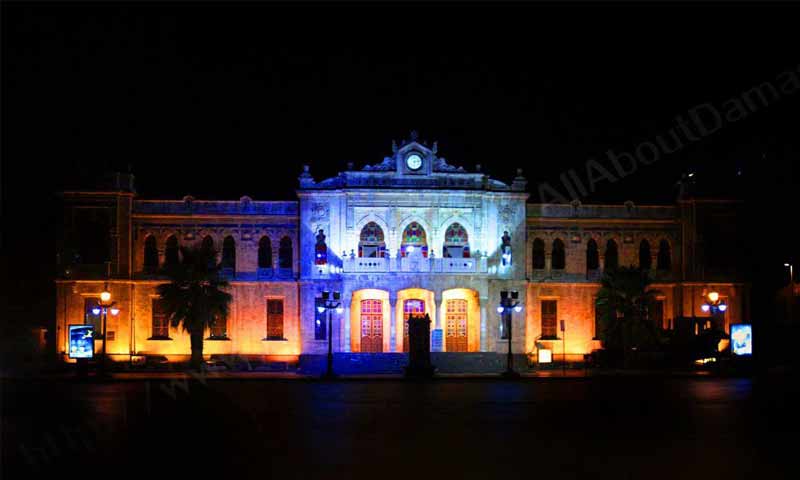



Damascus governorate has clarified its plans for the “al-Hejaz” Railway Station in Damascus and its surrounding properties after the controversy raised over the investment of several historical buildings amid fears of distorting the area’s architecture.
The governorate published a statement on its “Facebook” account on 15 July, in which it pointed out that there is two real property in the area, the “748 Qanawat Street” to the left of the al-Hejaz Station, and the “684” behind the station.
The first real property is the (al-Hejaz Café and Railway Station) owned by the General Foundation for the al-Hejaz Railway Station with an area of 5,133 square meters (m²).
This real property is a “flat ground surrounded by al-Nasr Street from the north, and residential and commercial buildings from the south, while Khalid Ibn al-Walid Street and the transportation building limit the property from the east.
The governorate indicated that the (al-Hejaz Café and Railway Station) property was put up for investment in 2008, and was re-presented again for investment at the 2019 “Tourism Investment Forum,” in Tartous province.
The governorate’s statement confirmed that “the project would not damage the station as it would be on its left side outside of the old city of Damascus.”
It also assured that “the project’s presence in this area would add to its aesthetic value through the existence of tourists near the al-Hejaz Station, the al-Hamidiyah Souq, the Citadel of Damascus, and the old city of Damascus.”
As for the second real property, it is located behind the al-Hejaz Station and is currently suspended due to disagreements between the owner of the property and “Damascus Cham Holding Company,” owned by Rami Makhlouf, a wealthy businessman and the maternal cousin of the Syrian regime head, Bashar al-Assad, as there are unresolved judicial disputes between the two sides.
The project to be established in the second real property includes building a hotel and a shopping mall behind the station, according to a plan approved by Syria’s Ministry of Public Works and Housing.
The governorate indicated that the objections to the project were related to its associated landscaping, as the building would be higher than the station, thus overshadowing it.
In October 2019, the “General Foundation for the al-Hejaz Railway Station” announced presenting the property surrounding the station to investment.
The project that involved constructing a large building next to the “al-Hejaz” Station and several other historical sites in the area has provoked resentment among many Syrians.
For these people, the project will distort the architecture of the area and overshadow the historical building of the al-Hejaz Station. It will cause the demolition of “al-Hejaz Cafe,” one of the most popular cafes in Damascus.
The building of the “al-Hejaz” Railway Station is considered one of the prominent events of Syria’s modern history. Its construction started in 1900 on the order of Ottoman ruler Sultan Abdul Hameed II, after a series of proposals and plans in 1864.
The main objective of the station’s construction was to ease the pilgrimage trip that used to last for three months to and from Damascus to Mecca and Medina.
Back then, the idea of establishing the station was received with overwhelming support by Muslims worldwide who donated 3.5 million Ottoman liras to the project.
In August 1908, the first train left to Medina from the “al-Hejaz2 Railway Station. The trip lasted for five days, carrying Syrian and Turkish pilgrims.
if you think the article contain wrong information or you have additional details Send Correction